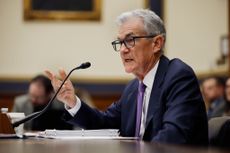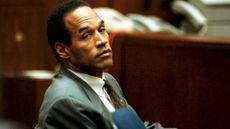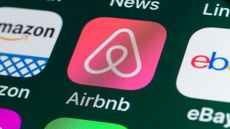Medicare for All: Promise and Perils
Incremental reforms are more likely than a complete overhaul.

While Republicans pause in their battle against Obamacare until after 2020, Democrats have again set sail toward health care reform. And the intended destination is familiar: expanding coverage for the nation’s uninsured millions while trying to rein in runaway costs. Few experts (or politicians) question the need for reform; the U.S. spends more per capita on health care than any developed nation as the life expectancy of Americans continues to decline.
One proposal—Medicare for All—has emerged as an early favorite, pocketing endorsements from presidential candidates and currently enjoying broad support among voters. But the phrase’s popularity may obscure its political weight: Medicare for All represents a radical shift to a nationalized, single-payer system that would eliminate most of the private insurance industry.
The immediate political barrier is price. Federal spending would balloon under a single-payer system by trillions; 10-year cost estimates tend to hover around $32 trillion, or a roughly 70% increase in federal expenditures. Supporters say those costs would be offset by a significant decline in the overall amount we pay under our current system. The Political Economy Research Institute at the University of Massachusetts Amherst estimates that having a single entity pay and process all care would cut administrative costs dramatically. Plus, having a nationalized system’s huge insurance pool could cut drug and treatment costs by giving the government stronger bargaining power with care providers, allowing it to establish standardized prices and an annual systemwide spending cap. Still, the plan would require a significant tax hike, whether it’s an increase in payroll taxes, a new national sales tax, a wealth tax or a medley of tax increases.

Sign up for Kiplinger’s Free E-Newsletters
Profit and prosper with the best of expert advice on investing, taxes, retirement, personal finance and more - straight to your e-mail.
Profit and prosper with the best of expert advice - straight to your e-mail.
Bumping into political reality. Many health economists are open to the idea of substantial reform, but “politically, it’s just not realistic,” says Ellen Meara, a health economist at Dartmouth College. Medicare for All would dissolve a trillion-dollar industry that employs half a million people and covers about 250 million beneficiaries. “The level of satisfaction with private coverage is quite high,” says Kristine Grow, of America’s Health Insurance Plans, a health insurance trade association and advocacy group.
Incremental changes that would extend health care coverage may be more politically and economically palatable. One option is to expand existing programs, such as allowing people as young as 50 to buy into Medicare. A public option would create a federal insurance provider that would compete with private insurers rather than replace them. Medicare for America, introduced in the House in late 2018, would start with a public option but automatically enroll newborns in the system, gradually growing the insurance pool over time and moving toward a single-payer system.
In the meantime, it’s not clear how well voters understand the breadth of change promised by Medicare for All. While 74% of Americans surveyed in January by the Kaiser Family Foundation said they supported a national, government-administered health plan open to all, only 37% endorsed eliminating private insurance. Approaching 2020, expect voters to get a crash course in health care options.

-
 Stock Market Today: Stocks Stabilize After Powell's Rate-Cut Warning
Stock Market Today: Stocks Stabilize After Powell's Rate-Cut WarningThe main indexes temporarily tumbled after Fed Chair Powell said interest rates could stay higher for longer.
By Karee Venema Published
-
 How Did O.J. Simpson Avoid Paying the Brown and Goldman Families?
How Did O.J. Simpson Avoid Paying the Brown and Goldman Families?And now that he’s died, will the families of Nicole Brown Simpson and Ron Goldman be able to collect on the 1997 civil judgment?
By John M. Goralka Published
-
 403(b) Contribution Limits for 2024
403(b) Contribution Limits for 2024retirement plans Teachers and nonprofit workers can contribute more to a 403(b) retirement plan in 2024 than they could in 2023.
By Jackie Stewart Published
-
 Roth IRA Contribution Limits for 2024
Roth IRA Contribution Limits for 2024Roth IRAs Roth IRA contribution limits have gone up for 2024. Here's what you need to know.
By Jackie Stewart Published
-
 Four Tips for Renting Out Your Home on Airbnb
Four Tips for Renting Out Your Home on Airbnbreal estate Here's what you should know before listing your home on Airbnb.
By Miriam Cross Published
-
 Five Ways to a Cheap Last-Minute Vacation
Five Ways to a Cheap Last-Minute VacationTravel Procrastinator? No matter. You can pull off a fun and memorable getaway on a moment's notice — without breaking the bank.
By Vaishali Varu Last updated
-
 How Much Life Insurance Do You Need?
How Much Life Insurance Do You Need?insurance Instead of relying on rules of thumb, you’re better off taking a systematic approach to figuring your life-insurance needs.
By Kimberly Lankford Published
-
 When Is Amazon Prime Day?
When Is Amazon Prime Day?Amazon Prime In 2023 Amazon had two Prime Day events — one in July and another, called Big Deal Days, in October. We expect 2024 to follow the same schedule.
By Bob Niedt Last updated
-
 How to Shop for Life Insurance in 3 Easy Steps
How to Shop for Life Insurance in 3 Easy Stepsinsurance Shopping for life insurance? You may be able to estimate how much you need online, but that's just the start of your search.
By Kaitlin Pitsker Published
-
 5 Ways to Shop for a Low Mortgage Rate
5 Ways to Shop for a Low Mortgage RateBecoming a Homeowner Rates are high this year, but you can still find an affordable loan.
By Daniel Bortz Published